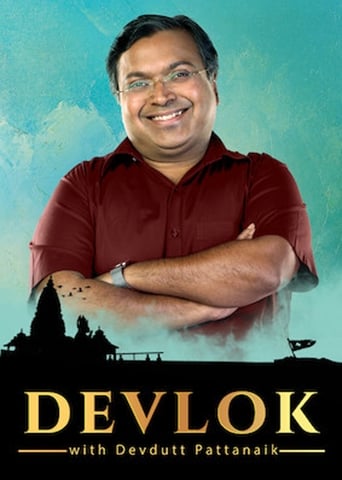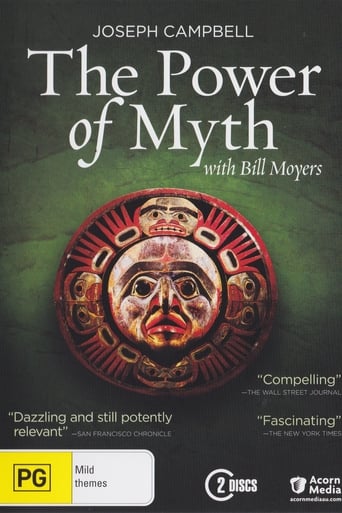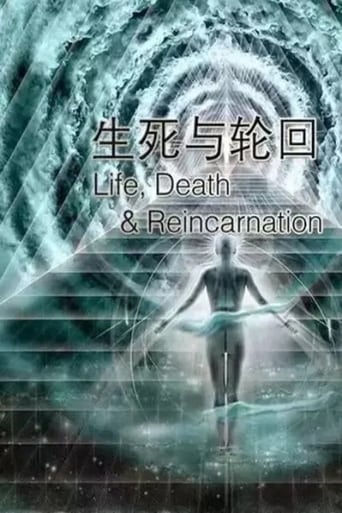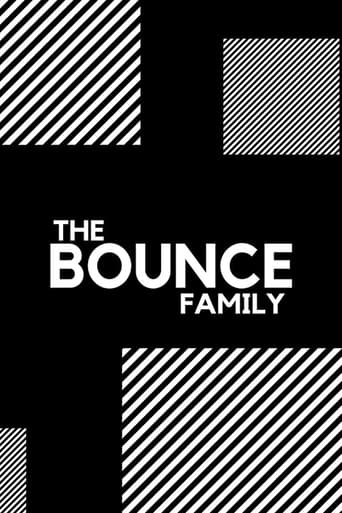Devlok With Devdutt Pattanaik Season 3
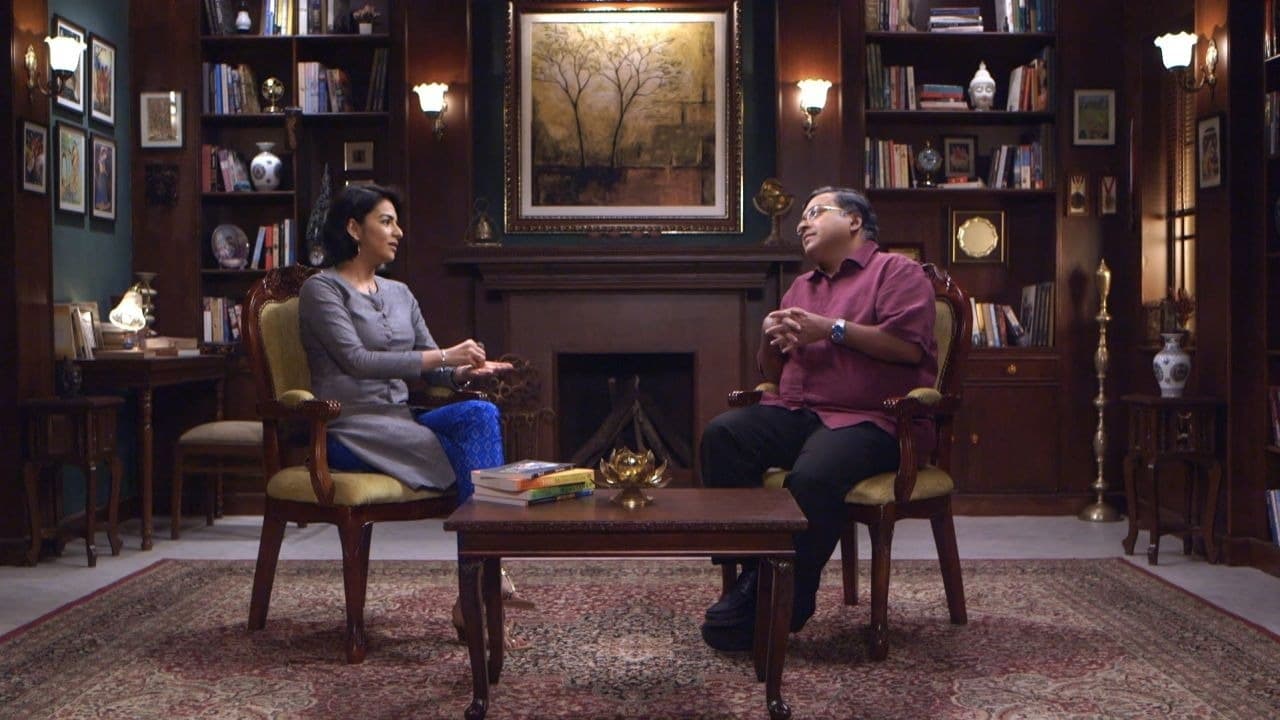
Through chats with host Rasika Dugal, mythologist Devdutt Pattanaik explores the meaning and modern-day relevance of Indian folklore and philosophy.
Watch NowWith 30 Day Free Trial!
Devlok With Devdutt Pattanaik
2015
Following two successful seasons, renowned mythologist Devdutt Pattanaik returns with Season 3 of Devlok, exploring Indian mythology alongside actress Rasika Duggal. In a casual chat show format, the series delves into lesser-known tales and enigmas, interpreting Hindu mythology's questions and customs. Through 18 engaging episodes, Pattanaik will unravel mythological stories and symbols, making complex narratives accessible to everyday audiences by presenting them in simple, relatable language.
Watch Trailer
With 30 Day Free Trial!
Devlok With Devdutt Pattanaik Season 3 Full Episode Guide
Devdutt highlights the emergence of Christianity in India and the genesis of the belief. He discusses how Christianity was introduced in India around 2000 years ago when Jesus Christ’s disciple – St. Thomas set foot in Kerala. Thomas began by preaching the word of God which slowly transformed into a religious belief leading to the formation of churches in India. Portuguese and British colonisation paved the way for many different Christian sects in India like the Roman Catholic, Protestants, Anglican, etc. Devdutt stresses that though other countries have one Christian belief, India is a country where one will find diversity in the Christian beliefs too.
Greek myths were part of an oral tradition that began in the Bronze Age, and their plots and themes unfolded gradually in the written literature of the archaic and classical periods. It was around 2300 BC, when a man named Alexander had stepped foot in India leading to a cultural exchange evident even today. The existence of Alexander is seen in Shraman parampara and stories about him are found in the form of folklore, especially in the Jain tradition. Devdutt elaborates on some popular Greek mythological stories and explores the difference between Indian mythology and Greek Mythology
Hindu mythology is a vast collection of narratives found in a multitude of Hindu texts. In this episode of Devlok, Devdutt Pattanaik converses about different versions of the Indian epic poem, the Ramayana, and the associations of various places of the country to the epic. The oldest version is generally recognized to be the Sanskrit version attributed to the sage Valmiki however there are several regional versions as well as versions of it in other countries Devdutt tells interesting snippets from its various versions.
In this episode of Devlok, Devdutt Pattanaik explores Jainism, a faith closely related to Buddhism through their shared sharaman parampara tradition. The religion centers on Anekantvada (diverse thoughts) and the concept of jeev (soul) and ajeev (matter), teaching that souls become trapped by worldly matter. Each generation sees 24 teerthankars who achieve moksh (complete purity) and guide others toward liberation. Their identical temple statues represent their purified souls, with Devdutt also discussing the Mahapurusha, comprising the 24 teerthankars, 12 chakravarti, and 27 heroes.
In this episode of Devlok, Devdutt Pattanaik talks about Surya Dev the Sun God. The first appearance of Surya Dev in India was during the Vedas. Eastern direction is considered the direction of good fortune because of the Sun. They say that when the sun rises he wipes away the darkness and his arrival is known to be favourable. Surya Dev is usually depicted sitting on a chariot and he has 7 horses which symbolizes seven days of the week and his chariot has twelve wheels which symbolizes the months of the year. Devdutt also converses about his wives and his children and the folklore about his lovers and the broken hearted. Devutt also talks about how Surya Dev makes his way in Mahabharata and Ramayana and how Vali and Sugreev were born.
In this episode of Devlok, Devdutt Pattanaik brings to life the Ravana of mythology. Ravana is considered as an antagonist according to Ramayana, but the people in Sri Lanka consider him as King of Lanka. Was Ravana a Brahmin or a Rakshas, or both Was he an Asur or Raskshas, or both Devdutt elaborates on these points of views leaving the decision upon the human sense of perception.
In this episode of Devlok, Devdutt Pattanaik explores Siddhartha's transformation into Buddha. Born to a protective father who tried to shield him from life's hardships due to a prophecy about his future, Siddhartha lived in luxury until he encountered four forms of human suffering outside his palace. These experiences led him to abandon his royal life in search of answers, ultimately achieving enlightenment through meditation. As Buddha, he established organized institutions to spread his teachings among locals, pioneering a revolutionary approach to spiritual instruction, with his philosophy eventually evolving into three distinct branches: Theravada, Mahayana, and Vajrayana.
In India, the rites of passage for individuals are sacrosanct. But what are these rites of passages or sanskaar Is it a religious concept or is it the way we experience our culture Is it something we are born with or something we learn from others In this episode of Devlok with Devdutt Pattanaik, we explore the rites of passages and its forms.
Of the many different devotees of Ram, Shabris dedication and service towards him is legendary. In this episode of Devlok, Devdutt Pattanaik elucidates the various stories related to Ram and Shabri and clears the confusion of shabri ke ber with its multiple versions in Ramayanas be it the Valmiki Ramayana 2000 years ago, Kamba Ramayana 1000 years ago, Ranganatha Ramayana 1000 years ago, Dandi Ramayana 500 years ago or Hindi literature 300 years ago.
We are all aware of the Mahabharata and Ramayana, but there are many such great epics that originated in the southern India which was written in Tamil, that focused mainly on Dravidian literature. In comparison with the northern literature which talks about the Gods and their greatness, the southern literature also talks about women playing an important role along with description of the lifestyles of the merchant class and manner of living of the ordinary people. Devdutt Pattanaik immerses deeper into this fascinating world and explains their significance. He also further converses about how these great epics were passed from north to south and vice versa.
In this episode of Devlok with Devdutt Pattanaik, the adept mythologist elaborates on the importance of the woman and man in maintaining a balanced society. Marriage is the taming of the man and the woman as well as feeling a sense of responsibility. He also talks about the 8 types of marriages written in the religious texts and their relevance in modern times
One of Krishnas most popular names is Dwarkadheesh, which has been derived from his life in Dwarka. It’s relatively an unknown fact that the term Dwarakadheesh often misunderstood as king of Dwarka actually means ‘Protector of Dwarka’. But why did the Mathuraborn Lord Krishna migrate to Dwarka In the seventh episode of Devlok with Devdutt Pattanaik, the mythologist unravels the facts behind some of these untold stories of the Dwaradheesh Krishna and the holy land of Dwarka.
Have you ever wondered how and why popular Indian cities like Mumbai and Calcutta got their names Yes, the names have an ancestral history linked to them, which has dwindled over the centuries and almost been forgotten. In the sixth episode of Devlok with Devdutt Pattanaik Season 3, the mythologist rekindles the relevance of Grama Devis, the goddess of fertility and Gram Devtas, the protector Gods.
The names RadhaKrishna are always spoken in the same breath, yet their relationship is unlike any other mentioned in Hindu mythology. While we are enchanted by their immortal love story, most might not completely understand the essence of their divine love. Several questions still arise about their relationship. How did Lord Krishna and the mortal Radha get together Why didnt they get married Why is Radha a prominent link for Lord Krishnas devotion In the fifth episode of Devlok with Devdutt Pattanaik Season 3, the adept mythologist shares a point of view on these questions and elaborates on the various beliefs, schools of thought and evidences from the Hindu Puranas.
There is more about the UNESCO World Heritage Site of Khajuraho Temples than meets the eye. In this episode of Devlok with Devdutt Pattanaik Season 3, the mythologist speaks of a culture and its scriptures that celebrate love and their association with Indian temples in general and Khajuraho in particular. He elaborates on the temples architecture and the relevance of sexual desires that have emerged from chronicles, epics and lore.
Our ancient texts abound with stories of kings and kingship, some courageous, some cowardly, some just and some unjust. This episode of Devlok with Devdutt Pattanaik shines the spotlight on Ram Rajya and why it is deemed most successful. He also elaborates the stark difference between Ram and Ravana as rulers and their ideologies on how Ravana only ambitioned to be the King, while Ram desired the onus of a King. Know about Lord Krishna as a guardian and the symbols of kingship including lion throne, gold royal footwear, stool, chhatri and chakra.
Fathers play a pivotal role in Hindu mythology and have a deep significance transcending family values. Devdutt Pattanaik introduces Vedic Gods as fathers and explains the sophisticated concept of fatherhood according to Puranas. Brahma, who is credited as the Creator, is also known as the Father and the Grandfather of all living beings. Devdutt also elaborates on the importance of bearing children and the stature of a son and a daughter in ones family.
The first episode of the new season of Devlok with Devdutt Pattnaik explores the ancient Indian tradition of Yoga. Devdutt elaborates on its types, the concept of tantra, mantra and yantra while demonstrating how deep rooted yoga and its philosophies are in the Indian ethos.
Free Trial Channels
Seasons


